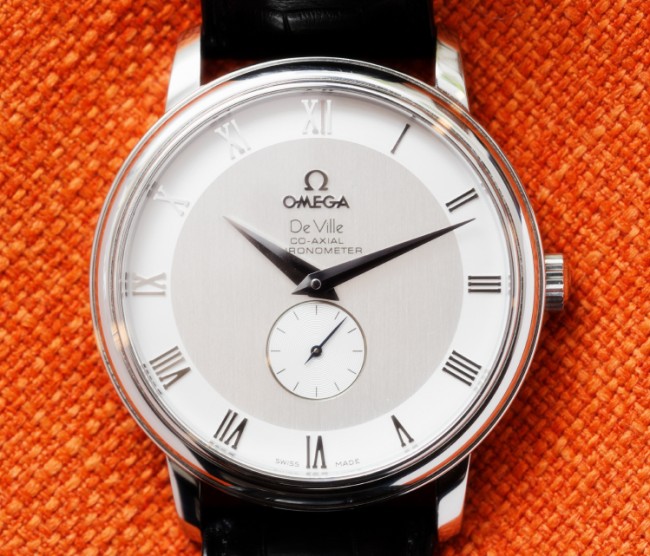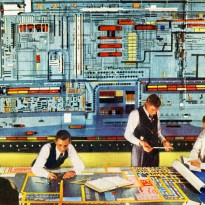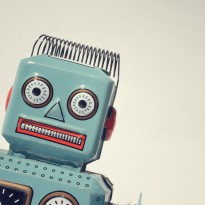
When the Apple Watch itself gets disrupted
Traditional watchmakers may have good reason to view the Apple Watch as a threat. But I predict that the Apple watch itself will be disrupted and made obsolete within 5-10 years. How the watch industry responds to the short-term smartwatch hazard may make a real difference to the long-term success of the great brands. As a fan of mechanical watches, I’m especially interested to see how this competition for the wrist will play out.
You could argue that luxury watch manufacturers really shouldn’t have much to fear from the emergence of so-called “smartwatches.” Traditionalists might claim the Apple Watch is just terrible because the battery doesn’t last long, it’s not truly waterproof, and its value will sharply decline within just a couple years.
There's not an app for that
In fact, there are numerous reasons why a handcrafted, precision-made mechanical watch will continue to appeal to a wide range of consumers. And honestly, many of those attributes can’t so easily be displaced by the flashy functionalities of a smartwatch.
Though luxury watch brands appeal to both men and women, a watch is one of the few (only?) acceptable pieces of jewelry a man can display in a professional setting. Luxury branded watches can be used to convey status, power, wealth, fashion, and taste. On a psychological level, elements of the signaling effect simply can't be denied.
Further, many watch collectors take comfort in the fact that luxury watches from the great houses tend to be good long-term investments, retaining 50-80% of their value—and sometimes even appreciating considerably—over time.
For some tech-inclined mechanical watch fans, Apple Watch features may seem compelling enough to start wearing one every day. There’s probably another group who may only use it for fitness-related activities like running or cycling. In between, there are prospective users who may appreciate the Apple Watch as a choice in their collection. They’ll elect to use it on days when benefits from the apps outweigh their desire to wear another watch.
The wrist is merely a temporary stop on a much longer journey
But does this really spell doom for mechanical watchmakers? Personally, I don’t think so. But I do believe that the industry should be careful how it responds to the threat. Many may still remember when in the 1970s quartz digital watches violently disrupted the market. Yet at the time, many higher-end brands seemed to miscalculate the challenge by ignoring it. What can we learn from that?
I’d submit that creating a hybrid between a mechanical and digital smart watch—a digital “frankenwatch” of sorts—is not the ideal response. The Apple Watch is thought to be disruptive because it’s meant to be worn on the wrist. But let's think for a moment about which item will have more permanence there...
The traditional wristwatch, by definition, can’t be worn anywhere else. But the smartwatch is a device that facilitates communication while measuring and displaying content. In this context, I can definitely see the Apple Watch itself being disrupted in the coming years as the display of this content leaps beyond the wrist.
When the content and sensors leap beyond the wrist
For example, why must our apps remain trapped within the watch form factor? Google Glass was ahead of its time, but when regular reading glasses can deliver similar functionality without themselves looking ridiculous, will the desire to wear a nice watch on the wrist evaporate? To take this a step further, why not embed sensors directly in our skin and display data from them on a heads-up display enabled contact lens?
Are embedded sensors too far in the future for you? With regard to technology we have today, why do we even need a single wearable? Why not a mesh of smart devices that communicate via APIs into a central place? In fact, this is already happening.
Right now, the watch is the next logical point of colonization for smart device functionality, but to me it seems a temporary home. Once smartwatches are themselves disrupted, there’s no reason why traditional watches can’t coexist with wearables (or...embedables?).
The future of the mechanical watch
So, my advice to mechanical watchmakers? You are the stewards of horology. Time will be told for generations to come in exciting and innovative ways. If you want to truly innovate in this space, your advances must not amount to “me too” afterthought products that threaten to cheapen your brand in the process.
To achieve the growth that you seek in the next century, look to the future beyond the wrist. There are numerous startups working on exciting ideas. Horology can play a part if you think a few chess moves ahead.












